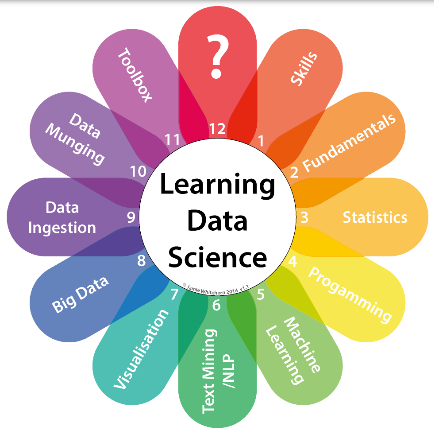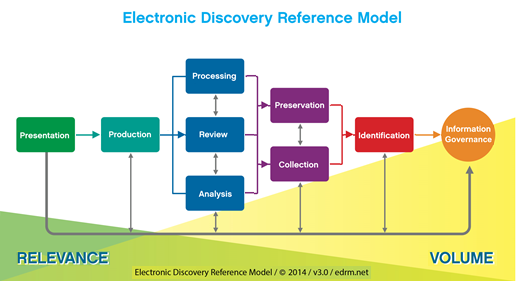As noted yesterday, LegalTech West Coast 2015 (LTWC) is happening this week – nearly a month later than usual and in a new locale (San Francisco!) – and eDiscovery Daily is reporting about the latest eDiscovery trends being discussed at the show. If you’re in the San Francisco area, today is the last day to come check out the show – there are a number of sessions (both paid and free) available and at least 58 exhibitors providing information on their products and services.
Perform a “find” on today’s LTNY conference schedule for “discovery” or “information governance” and you’ll get 64 hits. Sessions in the main conference tracks include:
10:30 AM – 11:30 AM:
“Preserve or Perish” vs. “Destroy or Drown”: Managing Electronically Stored Information (ESI)
- ”Less is more” both day-to-day and in eDiscovery, in that the many risks of over-saving trump potential concerns about under-saving.
- Cleaning one’s ESI “garage” in a routinized way hinges on a combination of people, process and platforms.
- Learning what an organization has and where is one step toward a solid IG regime as well as synergy between different internal constituencies.
Speakers are: Lael Andara, Partner, Ropers, Majeski, Kohn & Bentley; Vicki Lee Clewes, Vice President, Global Records & Information Management, McKesson; John Isaza, Esq., FAI, Partner, Rimon, PC; James Schellhase, Business Leader, Information Lifecycle Governance, IBM, Founder and President, StoredIQ, an IBM Company. Discussion Leader: Robert D. Brownstone, Technology & eDiscovery Counsel and Chair, Electronic Information Management (EIM) Group, Fenwick & West LLP.
Everyday E-Discovery: Bringing It In-House or Outsourcing It
It is not easy deciding whether to bring everyday eDiscovery in-house, outsource it, or change nothing. With every organization starting from a different point and with many possible outcomes, this decision-making process can seem overwhelmingly complicated. Join our panelists as they discuss:
- How to determine where your everyday eDiscovery stands today: Who does it, what they do, and how they do it;
- How to define where you want to be at the end of the process: what people, what processes, what technology;
- How to gather the information needed to make an informed decision; and
- How to arrive at an actionable decision on whether to bring everyday eDiscovery in-house or to outsource it.
Speakers to include are: David R. Cohen, Partner and Practice Group Leader, Global Records & E-Discovery Group, Reed Smith; Amy DeCesare, Assistant Vice President, Litigation Management, Allied World; David Popham, eDiscovery and Litigation Management Specialist, LexisNexis. Discussion Leader: George Socha, President, Socha Consulting.
E-Discovery Challenges in Government Investigations and Regulatory Actions
Stakes are high when organizations face government investigations or enforcement activity. And when dealing with the government, unique e-discovery challenges arise. Many government legal professionals lack deep e-discovery expertise, and have limited technical support available. Yet e-discovery technology plays a role in virtually every matter. Other issues that complicate discovery in government matters include:
- The “cooperative” posture often associated with governmental investigations when no judge is available to resolve discovery disputes;
- The increased transparency requested by the government;
- The broad breadth and compressed timelines associated with many government requests; and
- The government’s increasing tendency to request specific discovery protocols, including technology assisted review.
In this program, the panelists will explore how organizations can overcome these challenges and more effectively handle discovery in government matters. They will discuss how to identify the scope of the government’s request and appropriately tailor a discovery solution that is reasonable, cost efficient, and defensive—and if necessary, educate the agency about e-discovery along the way. The program will also explain the obligations to preserve information, and the ramifications—including criminal liability—for spoliation of evidence. Finally, the panelists will discuss using predictive coding and other advanced analytics in government discovery.
Speakers to include are: Scott Coonan, Senior Director of IP, Litigation & Strategy, Juniper Networks; Mira Edelman, Senior Discovery Counsel, Google; Dawson Horn, III, Esq., Associate General Counsel, Vice President & Deputy Director of eDiscovery, AIG; Sylvie Stulic, Manager of Legal Operations and Litigation, Electronic Arts, Inc. Discussion Leader: Amy Hinzmann, Senior Vice President, Managed Review, DiscoverReady.
1:30 PM – 2:30 PM:
New World Cyber Threats: Having a Good IG Foundation Can Help Guard Against Internal and External Threats
- High profile data breaches, such as at Anthem and Target, emphasize the need for all companies – not just retailers – to fine-tune proactive policies and practices for managing sensitive electronically stored information.
- Mapping and categorizing data sets help identify the more sensitive types of information warranting stronger protection measures
- A sound infosec compliance regime should include: role-based –access control (RBAC); encryption of data at rest and in transit; a robust password regime; employee training as to phishing schemes and other threats; and an incident-response plan.
Speakers to include: Cary Calderone, Esq, Founder, SandHill Law, Faculty, University of Phoenix; Sylvia Johnson, Senior Counsel, Wells Fargo; Tyler Newby, Partner, Litigation Group, Fenwick & West LLP; James Schellhase, Business Leader, Information Lifecycle Governance, IBM, Founder and President, StoredIQ, an IBM Company. Discussion Leader: Robert D. Brownstone, Technology & eDiscovery Counsel and Chair, Electronic Information Management (EIM) Group, Fenwick & West LLP.
Practical Pointers for Bringing Everyday E-Discovery Into Your Organization
You’ve decided to bring your everyday eDiscovery in-house. Now comes the hard part: execution. Our panelists will frame the issues, of course, but they also will deliver a plethora of practical pointers on how to bring everyday eDiscovery in-house in ways that are affordable and achievable:
- How to develop and implement processes that are well-defined, can be repeated and become routine, and can best tested for quality control and quality assurance;
- How to find, develop and support the people who will run and manage the processes; and
- How to choose and implement appropriate technologies those people can use to run those processes.
Speakers to include are: Meghan Brosnahan, Director of eDiscovery Services, Sutter Health; Alon Israely. Esq., CISSP, Strategic Partnerships, BIA; David Popham, eDiscovery and Litigation Management specialist, LexisNexis. Discussion Leader: George Socha, President, Socha Consulting.
Leveraging Technology and Analytics to Control the Information Deluge
As the volumes of information generated and stored by organizations grow, corporate counsel battle ever-increasing amounts of documents flowing into discovery. Counsel must find ways to effectively understand and use that information in the litigation, and they must also bring volumes down to reduce costs. This program will address how corporate practitioners can creatively use available technology and analytics tools—both in-house and with trusted technology partners—to control the document deluge. Specific topics will include:
- Using technology to preserve and collect narrowly and strategically;
- Creative, new ways to cull down document collections;
- Minimizing the number of documents subject to human review;
- Deploying statistical sampling and analysis to boost defensibility; and
- Harnessing information learned in discovery through effective knowledge management.
Speakers to include are: Pallab Chakraborty, Director of eDiscovery, Oracle; Kelly Lack, Litigation Attorney, Pacific Gas and Electric Company (PG&E); Alex Ponce De Leon, Corporate Counsel, Discovery, Google; James A. Sherer, Counsel and Co-Chair, Information Governance Practice Team, BakerHostetler. Discussion Leader: Patrick Oot, Partner, Shook, Hardy & Bacon LLP.
3:00 PM – 4:00 PM:
IG 2020: Impact of Emerging Technologies on Proactive IG and Reactive eDiscovery – Wearables, IoT and Social Media . . . Oh My!
- Who is in “possession, custody or control” of data on BYOD/WYOD devices, in the “accidental”/shadow cloud and in social-networking sites?
- Which policies and practices can help organizations adjust to the rapid pace of technological change?
- What are the best ways to manage and collect data stored in these challenging environments?
Speakers to include: Laura D. Berger, Attorney, Div. of Privacy and Identity Protection, Federal Trade Commission; Patrick Heim, Head of Trust and Security, Dropbox; Heidi Maher, Executive Director, Compliance, Governance & Oversight Council (CGOC); Adam Sand, General Counsel, Shopkick. Discussion Leader: Robert D. Brownstone, Technology & eDiscovery Counsel and Chair, Electronic Information Management (EIM) Group, Fenwick & West LLP.
Outsourcing Everyday E-Discovery: Managed Services Providers Versus Outside Counsel
You’ve decided you want to outsource at least a portion of your everyday eDiscovery to someone else, but now you need to figure out who that will be and make sure it all works well for a price you can afford. Our panelists will enlighten you, discussing the key outsourcing options and exploring their pros and cons:
- How you decide to whom your everyday eDiscovery work should go;
- What factors to consider with establishing contractual relationships with outsourcers;
- Ways to manage the outsourcing relationships and work; and
- Practicing good information governance in an outsourcing structure.
Speakers to include are: Shimmy Messing, Chief Technology Officer, Advanced Discovery, Patrick Oot, Partner, Shook, Hardy & Bacon LLP, David Yerich, Director, eDiscovery, UnitedHealth Group. Discussion Leader: George Socha, President, Socha Consulting.
Beyond the Corporate Walls: Managing Data Security and Privacy in Discovery
Data privacy and security score the top spot on many lists of corporate counsel concerns. It’s difficult enough for organizations to secure sensitive information within their own four walls—when information must leave the organization for litigation discovery, the challenge increases. In this CLE program, in-house counsel and e-discovery professionals will discuss how they meet this challenge and protect the company’s valuable assets. The panelists will address:
- Data security expectations for their e-discovery providers and law firms;
- Measures to protect information turned over to opposing parties and the court;
- When and how to insist that certain information may not even leave the organization, and must be kept behind the corporate firewall; and
- Effective ways to screen for uber-sensitive information like trade secrets, source code, unreleased products, and personally identifying information.
Speakers to include are: Scott Carlson, Partner and Chair, eDiscovery and Information Governance Group, Seyfarth Shaw; John Davis, Executive Director and Counsel Global eDiscovery, UBS; Amie Taal, Vice President of Digital Forensics/Investigations, Deutsche Bank; Patrick E. Zeller, Director and Senior Counsel for eDiscovery and Privacy, Gilead Sciences. Discussion Leader: Maureen O’Neill, Senior Vice President, Discovery Strategy, DiscoverReady.
In addition to these, there are other sessions today that might be of interest. For a complete description for all sessions today, click here.
So, what do you think? Did you attend LTWC this year? Please share any comments you might have or if you’d like to know more about a particular topic.
Disclaimer: The views represented herein are exclusively the views of the author, and do not necessarily represent the views held by CloudNine. eDiscovery Daily is made available by CloudNine solely for educational purposes to provide general information about general eDiscovery principles and not to provide specific legal advice applicable to any particular circumstance. eDiscovery Daily should not be used as a substitute for competent legal advice from a lawyer you have retained and who has agreed to represent you.








